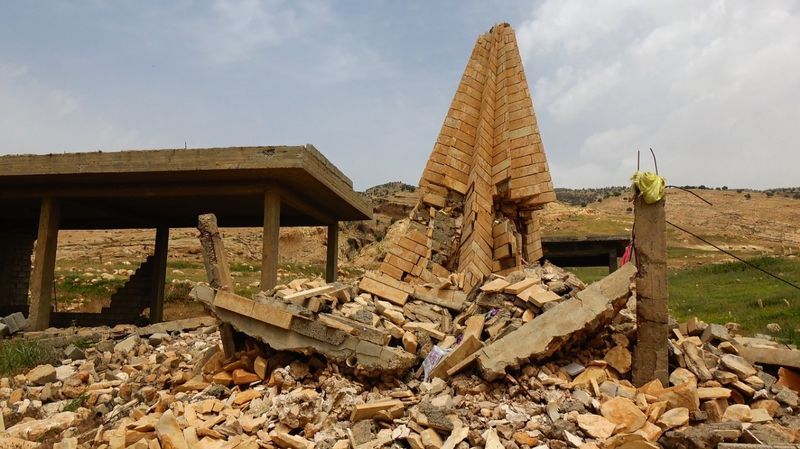What can be done if a State not only fails to prevent a genocide which it is obliged to do under the 1948 Convention on the Prevention and Punishment of the Crime of Genocide (Convention) but even worse, is complicit in its perpetration? This is an inevitable question in the context of the Yazidi genocide.
In its recent report the Yazidi Justice Committee (YJC), an ad hoc body formed of leading human rights NGOs, identified that Syria, Iraq and Turkey bear legal responsibility for the failure to prevent and punish perpetrators of an ongoing Yazidi genocide and in respect of Turkey a finding of complicity with genocide was made; a genocide which YJC found was at risk of being perpetrated at least since 2013 at the hands of the Islamic State of Iraq and Syria (ISIS).
And yet, there has been a collective failure to heed warnings and early evidence, effectively allowing ISIS to continue its systematic campaign to destroy the Yazidis.
States, however, can be held to account if they fail to comply with their obligations owed under the Convention – it’s called state responsibility. These include prohibition and non-complicity in genocide, prevention, and punishment of perpetrators. The obligation to prevent requires States to take measures (political, economic, and legal) to prevent genocide, the moment they learn, or should have learned, that there is a serious risk of genocide.
Turkey, for instance, failed in its responsibility to take measures to curtail the sale, transfer, trafficking and enslavement of Yazidi women and girls taken by ISIS on its territory. Turkey was also identified to have been complicit in the commission of the genocide by failing to stop ISIS fighters to freely cross its border, smuggle oil, materiel and resources at a time when it knew that genocidal acts were occurring. There is a high probability that if States had fulfilled their obligations to prevent genocide, let alone, not to be complicit in genocidal acts, ISIS could not have perpetrated these atrocities.
What now? There are domestic and international avenues for accountability.
In 2016, the House of Commons urged the UK government to refer the situation of the Yazidis to the UN Security Council (UNSC) with a view to conferring jurisdiction upon the International Criminal Court (ICC) to bring individual perpetrators to justice stating that: ‘Yazidis, and other ethnic and religious minorities in Iraq and Syria are suffering genocide at the hands of Daesh [ISIS].’ The government, however, not necessarily denying that the atrocities amount to genocide, to date maintains its position that it is for a ‘competent court’ and not Government to make such a determination. The problem here is that there is no mandatory mechanism yet to refer evidence of genocide to a competent court (and the UK government will not refer on its own initiative) which leads to morally indefensible inaction, undermines the integrity of the international legal order, and erodes the meaning of the rule of law.
Universal jurisdiction allows for prosecution of individual perpetrators of genocide before domestic courts of certain States – this is true of the UK. After 8 years of ongoing genocide, only Germany has made use of it internationally, setting a historic precedent in 2021 by recognising the egregious conduct committed by an individual ISIS fighter as genocide. This judgment ought to have entirely undermined the UK government’s stance, which conveniently noted that the decision was appealable, and it would await to see the final outcome. The response though consistently remains merely reactionary, and not preventative.
The international legal framework also has its flaws: there are no international courts or tribunals before which ISIS, a non-State actor, may be brought. The ICC has no jurisdiction over Iraq or Syria, where most genocidal acts and crimes against humanity committed by ISIS against the Yazidis occurred, as they have not ratified the ICC Statute. A UNSC referral of Syria to the ICC was attempted in 2014, supported by the UK, but was vetoed by Russia and China.
That does not mean the endgame, however, because fortunately, there are mechanisms in place – in the form of available competent courts – but the government lacks the political will to use them.
In 2019, The Gambia set an important example when it took Myanmar to the International Court of Justice (ICJ) alleging violations of the Convention. This represents an unprecedented and pivotal pathway for international justice and an opportunity to clarify and reinforce the obligations under the Convention. It is a stark reminder that by signing up, States have arguably agreed that the conduct set out in the Convention strikes at the core of our values to such an extent that there is a clear basis for coercive (lawful) measures.
If the UK government is serious about justice, accountability, and atrocity prevention, it could, and arguably should, start by recognising the genocide, commencing domestic proceedings against possible perpetrators on its soil (as has Germany), and consider using the YJC’s analysis and expertise to launch proceedings asserting breach of the obligations under the Convention by one or more of the three States before the ICJ.







